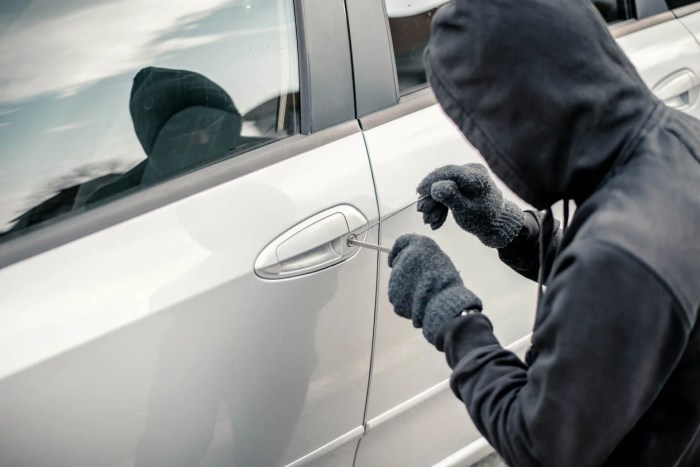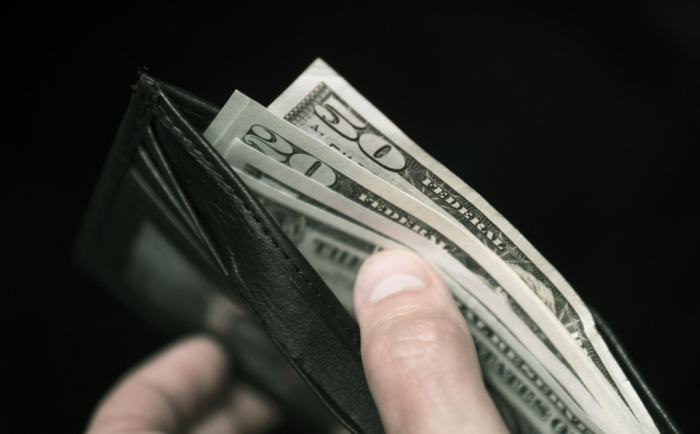Petit larceny va 1st offense – When it comes to petit larceny in Virginia, first-time offenders often face a myriad of questions and concerns. This comprehensive guide delves into the legal intricacies, potential penalties, and essential steps to navigate this complex legal landscape.
Petit larceny, defined as the theft of property valued under a certain amount, carries specific consequences in the Commonwealth of Virginia. Understanding these implications is crucial for anyone facing such charges.
Definition of Petit Larceny in Virginia

Petit larceny in Virginia is a Class 1 misdemeanor. It is defined as the theft of property valued at less than $1,000.
Examples of actions that constitute petit larceny include:
- Shoplifting
- Stealing a bicycle
- Taking money from a cash register
- Embezzlement of less than $1,000
- Writing bad checks for less than $1,000
Penalties for First Offense Petit Larceny in Virginia

Petit larceny is a misdemeanor in Virginia, and the penalties for a first offense conviction can vary depending on the value of the stolen property.
- If the value of the stolen property is less than $200, the penalty can include up to 12 months in jail and a fine of up to $2,500.
- If the value of the stolen property is between $200 and $1,000, the penalty can include up to 5 years in prison and a fine of up to $2,500.
- If the value of the stolen property is over $1,000, the penalty can include up to 10 years in prison and a fine of up to $2,500.
Other factors that may influence sentencing include the defendant’s criminal history, whether the property was recovered, and whether the defendant made restitution to the victim.
Defenses to Petit Larceny Charges in Virginia

If you’ve been charged with petit larceny in Virginia, there are several defenses you can raise to challenge the charges. These defenses aim to prove that you did not commit the crime, that you had a valid defense, or that there are mitigating circumstances that should reduce your punishment.
Common defenses to petit larceny charges in Virginia include:
Lack of Intent
To prove petit larceny, the prosecution must show that you intended to permanently deprive the owner of the property. If you can show that you did not intend to steal the property, such as if you borrowed it without permission or mistakenly believed it was yours, you may have a defense.
Mistake of Fact
If you mistakenly believed that the property was abandoned or that you had a right to take it, you may have a defense of mistake of fact. This defense is only available if your mistake was reasonable and in good faith.
Entrapment
If you were induced to commit the crime by law enforcement officers or their agents, you may have a defense of entrapment. This defense is only available if the officers’ conduct was outrageous and if you were not predisposed to commit the crime.
Necessity
If you stole the property out of necessity, such as to prevent harm to yourself or others, you may have a defense of necessity. This defense is only available if there was no other reasonable way to avoid the harm and if the harm you prevented was greater than the harm caused by your theft.
Petit larceny, or first-degree theft in Virginia, can have severe consequences. To learn more about the legal implications, consult a legal professional. In the meantime, explore the rich tapestry of Spanish culture through its vibrant verbs at la cultura de españa verbos . By understanding the nuances of Spanish verbs, you can gain a deeper appreciation for the beauty and complexity of the language.
Insufficient Evidence, Petit larceny va 1st offense
If the prosecution does not have enough evidence to prove beyond a reasonable doubt that you committed the crime, you may be entitled to a dismissal of the charges.
Impact of a First Offense Petit Larceny Conviction in Virginia

A first offense petit larceny conviction in Virginia can have significant consequences on an individual’s life. It can impact employment, housing, and other aspects of daily living.
In terms of employment, a conviction can make it difficult to obtain or maintain a job. Many employers conduct background checks, and a criminal record can raise red flags. This is especially true for jobs that require handling money or working with vulnerable populations.
Housing
A first offense petit larceny conviction can also affect an individual’s ability to obtain or maintain housing. Many landlords conduct background checks, and a criminal record can make it difficult to secure a lease. This is especially true for subsidized housing programs, which often have strict eligibility requirements.
Steps to Take After a First Offense Petit Larceny Arrest in Virginia: Petit Larceny Va 1st Offense

Being arrested for petit larceny can be a stressful and confusing experience. It’s crucial to understand the steps you should take to protect your rights and navigate the legal process effectively.
First and foremost, it’s essential to seek legal representation. An experienced criminal defense attorney can guide you through the legal process, advise you on your options, and represent your interests in court.
Understanding the Legal Process
After an arrest, you will typically be taken to jail and booked. You will be given a bond hearing, where the judge will determine whether you can be released on bail or must remain in jail until your trial. Your attorney can assist you in preparing for the bond hearing and negotiating bail terms.
If you are released on bail, you will need to attend all scheduled court hearings. Your attorney will keep you informed about the status of your case and represent you in court. They will negotiate with the prosecution on your behalf and work towards a favorable outcome.
Seeking Legal Representation
Choosing the right attorney is crucial. Look for an attorney who has experience handling petit larceny cases and a proven track record of success. They should be able to explain the legal process clearly and answer your questions thoroughly.
It’s also important to consider the cost of legal representation. Discuss fees and payment options with your attorney upfront to avoid any surprises.
Resources for Individuals Facing Petit Larceny Charges in Virginia

Individuals facing petit larceny charges in Virginia can access various organizations and resources for support and assistance. These resources provide legal guidance, counseling, and other services to help navigate the legal process and its potential consequences.
Here are some organizations that can provide assistance:
Legal Aid Societies
- Legal Aid Society of Eastern Virginia: (757) 627-5320
- Legal Aid Society of Roanoke Valley: (540) 343-6860
- Legal Aid Society of Southwest Virginia: (276) 623-3142
Public Defender’s Offices
- Office of the Public Defender: (804) 786-4300
- Richmond Public Defender’s Office: (804) 646-6534
- Virginia Beach Public Defender’s Office: (757) 385-2851
Community Legal Clinics
- University of Richmond School of Law Legal Aid Justice Center: (804) 289-8080
- William & Mary Law School Legal Aid Society: (757) 221-3810
- Virginia Tech Law School Legal Aid Clinic: (540) 231-5800
FAQ Resource
What constitutes petit larceny in Virginia?
Petit larceny involves the theft of property valued under $1,000.
What are the potential penalties for a first offense petit larceny conviction?
Penalties may include fines, jail time, and community service, depending on the value of the stolen property and the offender’s criminal history.
What are common defenses to petit larceny charges?
Defenses may include lack of intent, mistaken belief of ownership, and entrapment.
What steps should I take after being arrested for petit larceny?
Seek legal representation immediately and cooperate with the legal process.